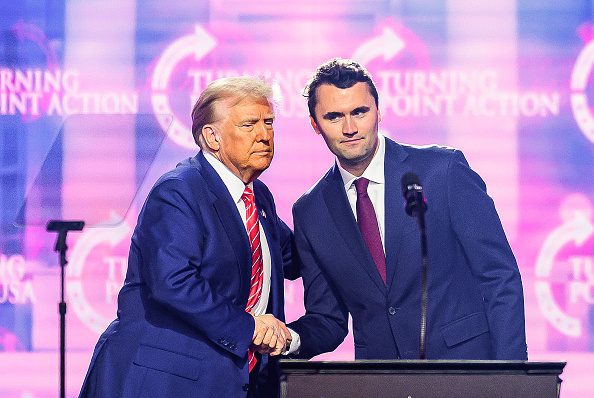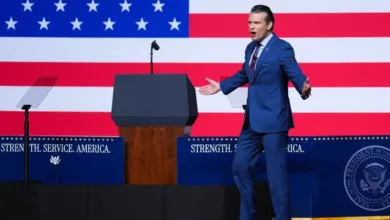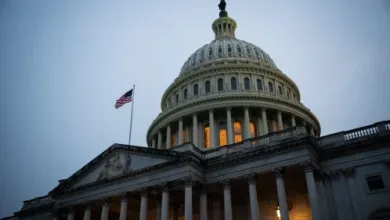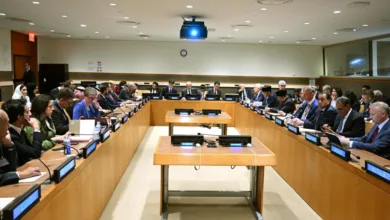Political Violence Sparks Alarm in the U.S. After Charlie Kirk Assassination

Charlie Kirk’s Killing Shakes U.S. Political Scene The assassination of prominent conservative activist and Trump supporter Charlie Kirk on Wednesday sent shockwaves through the United States, heightening concerns over political violence The Most Famous Scandals in American Politics. His death occurred in an increasingly ideologically charged political climate, where violence has targeted officials across multiple states.
Former President Donald Trump, a frequent target himself, had survived two assassination attempts last year—one in July and another in September 2024. Kirk, a key advocate for Trump’s political agenda, was among his closest allies, making his assassination a significant blow to conservative leadership.
Historical Context of Political Violence in the U.S.
Political violence is not new in American history. As early as 1801, tensions between Treasury Secretary Alexander Hamilton and Vice President Aaron Burr escalated to lethal force, resulting in Hamilton’s death. Over the years, four U.S. presidents have been assassinated, alongside multiple attempts on the lives of presidential candidates, members of Congress, and other political leaders Trump Hints at Pardoning Maxwell.
The 6 January 2021 attack on the Capitol marked a turning point, shifting the political discourse from negotiation to outright confrontation. Democrats are increasingly labeled as “leftist” or even “socialist” by Republicans, while Republicans are depicted as “dictatorial” or “fascist” in Democratic rhetoric. This adversarial language has deepened polarization and reduced the space for compromise.
Escalating Ideological Division
The podcast host Steve Bannon, a former Trump White House advisor, frequently describes America as being “at war” between Republicans and Democrats. Such rhetoric has normalized hostility, fostering an environment in which political violence can gain tacit public acceptance UAE Summons Israeli Ambassador.
Public opinion surveys suggest that approximately 1 in 10 Americans support political violence, with 70% believing the political system is ineffective. This alarming perception creates fertile ground for further violent acts. Experts warn that the assassination of Kirk could foreshadow similar attacks if political rhetoric continues to escalate unchecked.
Details of the Charlie Kirk Assassination
Kirk’s assassination mirrored the method used in the previous attempt on Trump’s life. A sniper positioned on a nearby building targeted the platform where Kirk was scheduled to speak at a university event. The fatal shot killed Kirk instantly, and the perpetrator fled, eluding capture, highlighting lapses in security Trump on Russian Drone Incursion in Poland.
Authorities have raised concerns about security gaps, emphasizing the urgency of protecting political figures in a climate where violence is increasingly normalized. The incident underscores the vulnerabilities of public events and the potential for further escalation.
Political Repercussions and National Debate
The assassination has reignited debates about the role of political rhetoric in inciting violence. Analysts warn that extreme language and demonization of opponents could continue to radicalize segments of the population, increasing the likelihood of violent acts Poland Responds to Trump.
Trump publicly mourned Kirk, calling him a “martyr” for the conservative cause. Conservative media outlets amplified this narrative, framing Kirk’s death as evidence of a hostile political climate targeting Republicans and their supporters.
Public Security and Policy Considerations
The incident has prompted a renewed focus on security measures at political events. Experts recommend enhancing surveillance, improving rapid response protocols, and implementing stricter access controls at public gatherings. Some lawmakers are also calling for legislation aimed at reducing politically motivated violence, although these proposals face partisan resistance Anticipated Meeting Between Trump and Qatar’s Prime Minister.
Broader Implications for U.S. Politics
Kirk’s assassination illustrates a broader trend of escalating political violence in America. As ideological divides deepen, the potential for further attacks on prominent figures grows. Political analysts stress the importance of addressing root causes, including polarization, social media radicalization, and public distrust in democratic institutions.
The event has raised questions about how the U.S. can maintain a stable political system amid growing extremism. Without immediate intervention, there is a real risk of normalizing violence as a tool in political disputes, undermining democratic governance.
The murder of Charlie Kirk marks a dangerous escalation in U.S. political life. It reflects historical patterns of political violence while highlighting modern dynamics of ideological polarization and public radicalization. Ensuring the safety of political figures, fostering civil discourse, and addressing public disillusionment are critical to preventing further tragedies.




